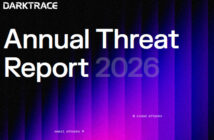 Central to understanding online Islamic terrorism is the need to understand such concepts as group identity and group polarisation. These are not only critical in understanding how extremism and terrorism spreads but also in developing prevention strategies.
Central to understanding online Islamic terrorism is the need to understand such concepts as group identity and group polarisation. These are not only critical in understanding how extremism and terrorism spreads but also in developing prevention strategies.
The internet and in particular social media has connected the globe and in many cases help contribute to the sense of a global community. Potentially people can connect with a virtually unlimited variety of people with all kinds of beliefs and cultural identities. One may even assume that this may make people more socially aware of others cultures, more understanding and more tolerant. However, this is a dangerous, and for many people, a false assumption. So what are people who go online really looking for? Are they exposed to diverse opinions? Do they become more tolerant and what does this mean for Islamic terrorism? Let’s examine these questions one at a time.
Research on social media has indicated that people tend to seek out those who hold similar beliefs and opinions to their own. Essentially we seek out those who are like us and share our own or a similar world view and sets of interests. Homophily is the term used by sociologists. Of course within this there is still plenty of scope for diversity. Nonetheless, at times, a common group identity holds a group of people together. One of the strongest foundations for a group identity is a sense of purpose or cause. This may be based on religion, protecting environment, a sense of nationalism or many other reasons.
One common misconception is that Islamic terrorism is based solely on the Islamic faith. While Islamic terrorism uses, or more correctly abuses, elements of the Islamic faith; acts of terrorism are founded on a specific purpose or goal that is also associated with a commitment to acts of violence. In contrast, the Islamic faith has a completely different purpose; it is founded on a sense of submission to God. Essentially, the two will have a very different sense of group identity.
Islamic terrorists aim to create a strong sense of group identity to their cause using the internet and in particular social media tools such as YouTube and Facebook. Unfortunately sociological constructs tend to support this process. Research has indicated that reinforcing one’s opinions and beliefs tends to lead to greater opinion extremity. When considering the process of Islamic radicalisation, this is very concerning. Essentially, it means that when two or more radicals get together they often become more extreme in their beliefs. While this effect is clearly evident in face to face interactions such as terrorist cells, it is also important to note that it also occurs in virtual online networks.
The second question we need to look at is: are online terrorists or radicals exposed to diverse or opposing views and what affect does this have? Given the nature of social media it would be nearly impossible to prevent exposure to opposing or dissenting views. So the answer is yes, they are exposed to people who are critical of their beliefs and actions. The problem is it does not make them more moderate. In fact it has the opposite effect. This phenomenon is known as group polarisation, where groups exposed to opposing views become stronger and more polarised in their original views. Once again, group polarisation occurs in both real and virtual contexts.
Group polarisation works on social media in several ways. First, radicals often seek out confrontation with those of dissenting views. Such confrontation is a powerful tool in reinforcing their group identity as distinct and opposed to views held by the West who are regarded as the enemy by Islamic extremists. However, the group polarisation phenomena does have some benefits, most notably the interactions with moderate Muslims who are critical of terrorist’s actions. Such interactions, while polarising extremists also polarise moderates further against Islamic terrorism hence preventing further recruitment…
To read the full story, make sure you subscribe now! Go to http://www.australiansecuritymagazine.com.au/subscribe/ and purchase either a 1 year or 3 year subscription today!





